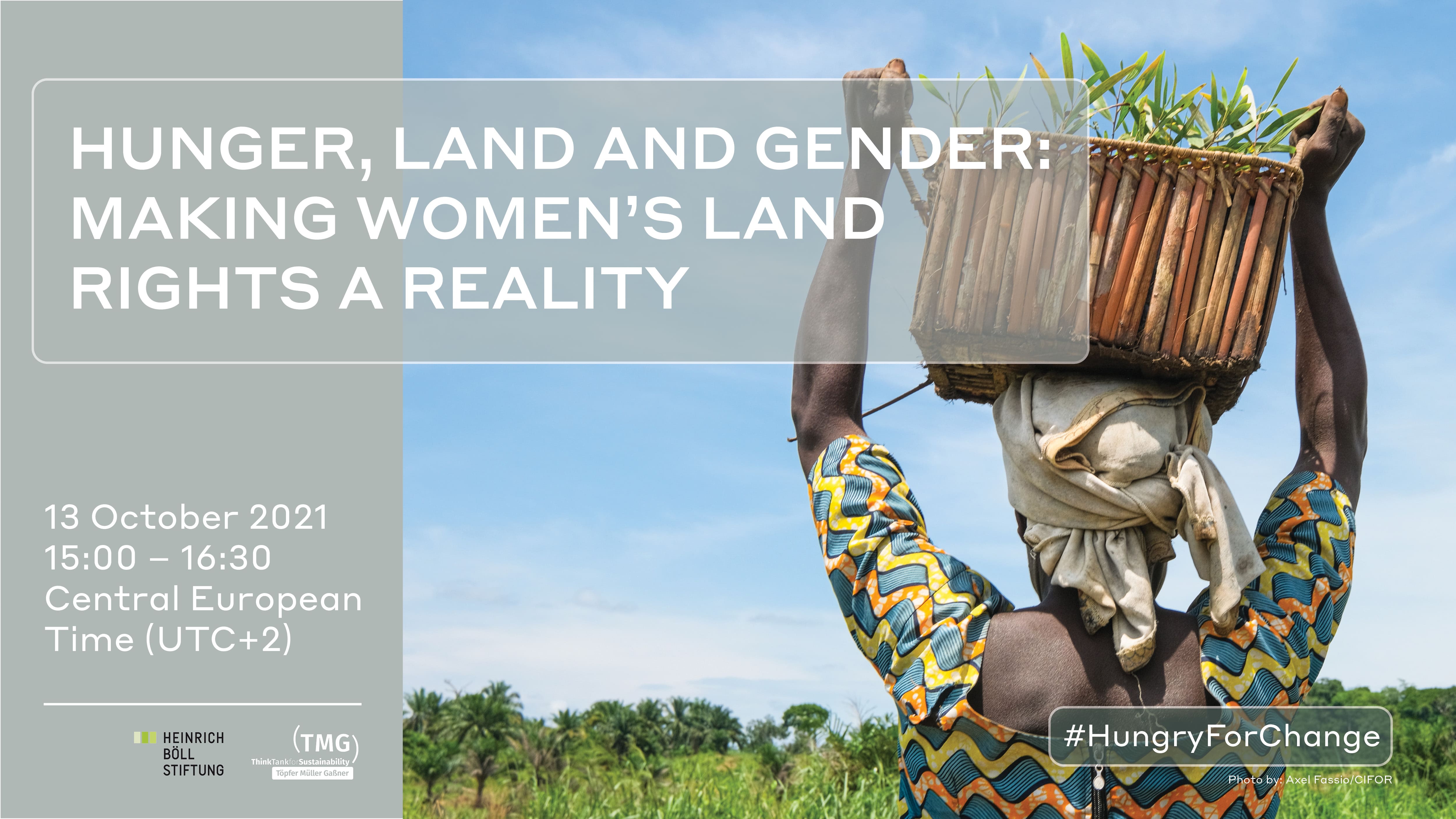Hunger, Land and Gender: Webinar report
Around forty participants joined experts on land and human rights from Malawi, India and Germany for an informative discussion

There remains a stark gap between the widespread recognition of the importance of women's land rights in policy, and the lack of substantive progress towards their achievement. Therefore, together with the Heinrich Boell Foundation, TMG organised the webinar 'Hunger, Land and Gender: Making Women's Land Rights a Reality,' on 13th October 2021. Bringing together experts in land and human rights from India, Malawi and Germany, the webinar aimed to discuss ways that the land rights movement could build on human rights approaches to strengthen their work on women’s land tenure security. Building on research and practical experience, including TMG's project on human rights and land rights in Malawi, webinar participants aimed to identify how such an approach is already working in practice and could be deployed in new contexts.
Shipra Deo, Director of Women's Land Rights, India, for Landesa opened the discussion by observing three key facts. Firstly, that only with clear, secure land rights will farmers make the long term investments necessary to increase the productivity of their land and protect it against degradation. Secondly, a very substantial portion of farmers around the world are women. By the same token, a large portion of women are farmers. When we design policies targeted at farming and farmers we must recognise that we are talking about women; and when we design policies on women - or gender more broadly - we must give due attention to farming. Thirdly, despite their huge contribution agriculture around the world, women own a very low percentage of the world's land, and in many cases suffer from legal constraints on their rights to own, inherit, or use land.
Michael Windfuhr, Deputy Director of the German Institute for Human Rights, further added that what is needed is not necessarily ownership rights. The wholesale universalisation of individual land ownership rights could further feed the commodification of land. Newly land-owning poor rural people may easily be induced to sell their land, often for a relatively low price, which in the long term would mean continued lack of access to land. What is required instead are secure use and access rights. These in turn require strong institutional structures to protect rights, as well as the resolution of many other infrastructural questions such as the availability of credit, the ease of access to markets, the provision of weather information, and so on. Rights which exist merely 'on paper' are inadequate.
Habiba Rezwana Osman, Executive Secretary of the Malawi Human Rights Commission, explained that her organisation deals with many more complaints over land conflicts from women. Particularly vulnerable are women experiencing a change of marital status, either as a result of divorce of being widowed. In many cases their male former partner, or his family, will assert the right to take the land from the woman. While the Voluntary Guidelines on the Responsibly Governance of Tenure of Land (VGGT) have been useful, their implementation is not necessarily always effective.
The subsequent discussion with audience members and moderators Layla Liebetrau of Boell, and Jes Weigelt of TMG, drew attention to a number of related issues. One participant based in Kenya working in the field of gender-based violence observed a relationship between land conflicts and such incidents. As a number of respondants emphasised, land relations are intertwined with social relations and relations of power and therefore cannot be resolved in isolation from relevant social questions: a topic which was frustratingly absent from discussions at the UN Food Systems Summit. As Shipra Deo outlined, land rights and gender practitioners need focused research that can identify clearly and precisely what policy gaps there are, looking at each law or policy through a gender lense. What is needed therefore, is a land rights ‘ecosystem’, which will address policies, institutions, and structures of support in a holistic way, rather than in distinct silos or without regard to social relations including relations of gender.
You can watch the webinar here.
